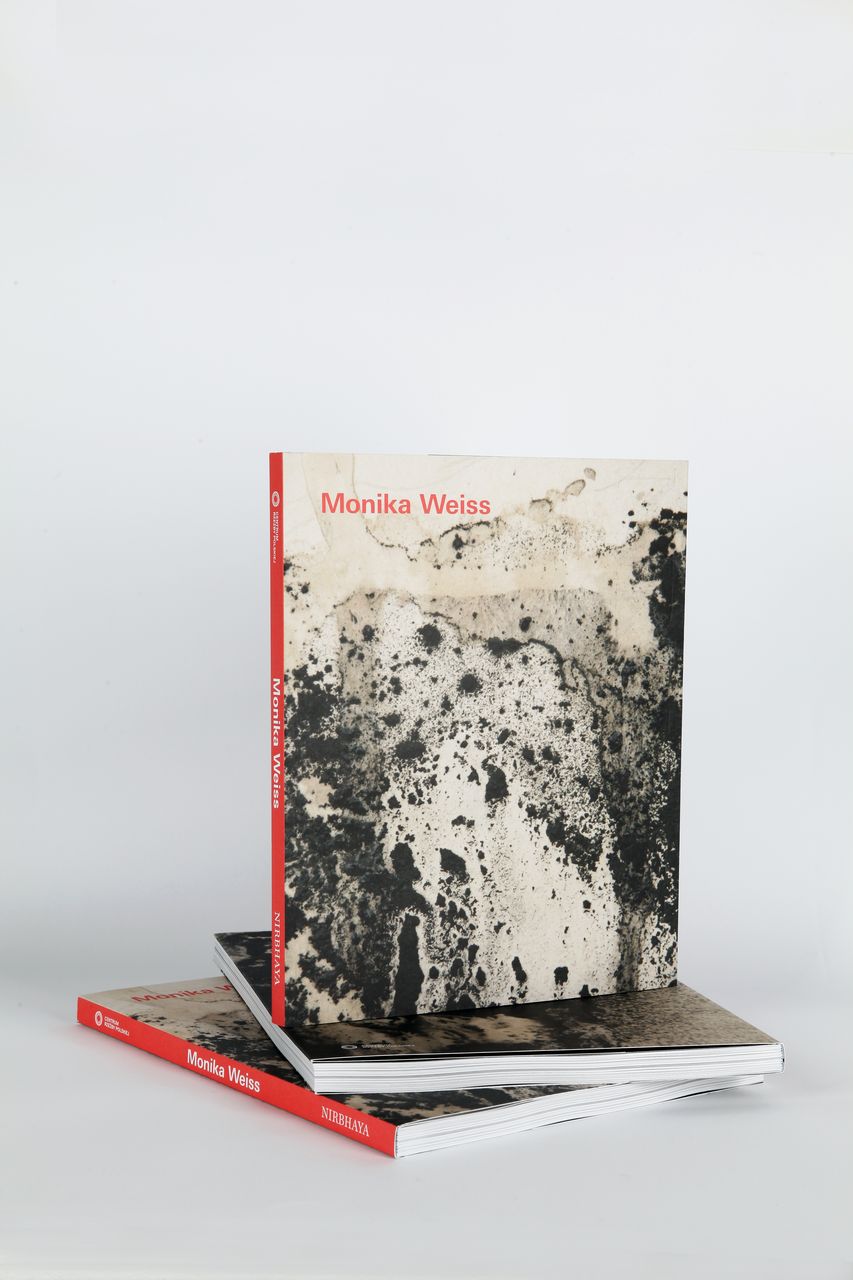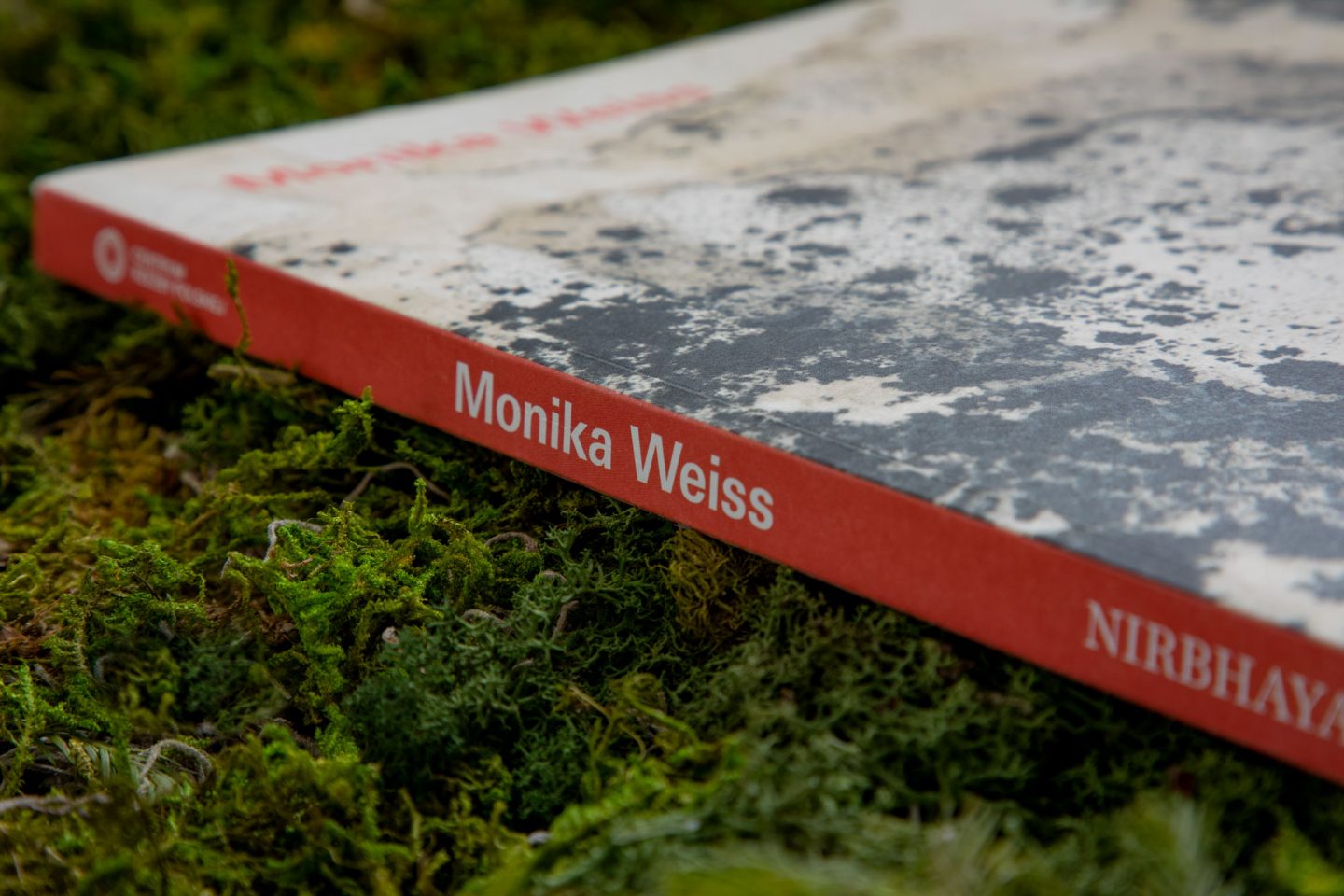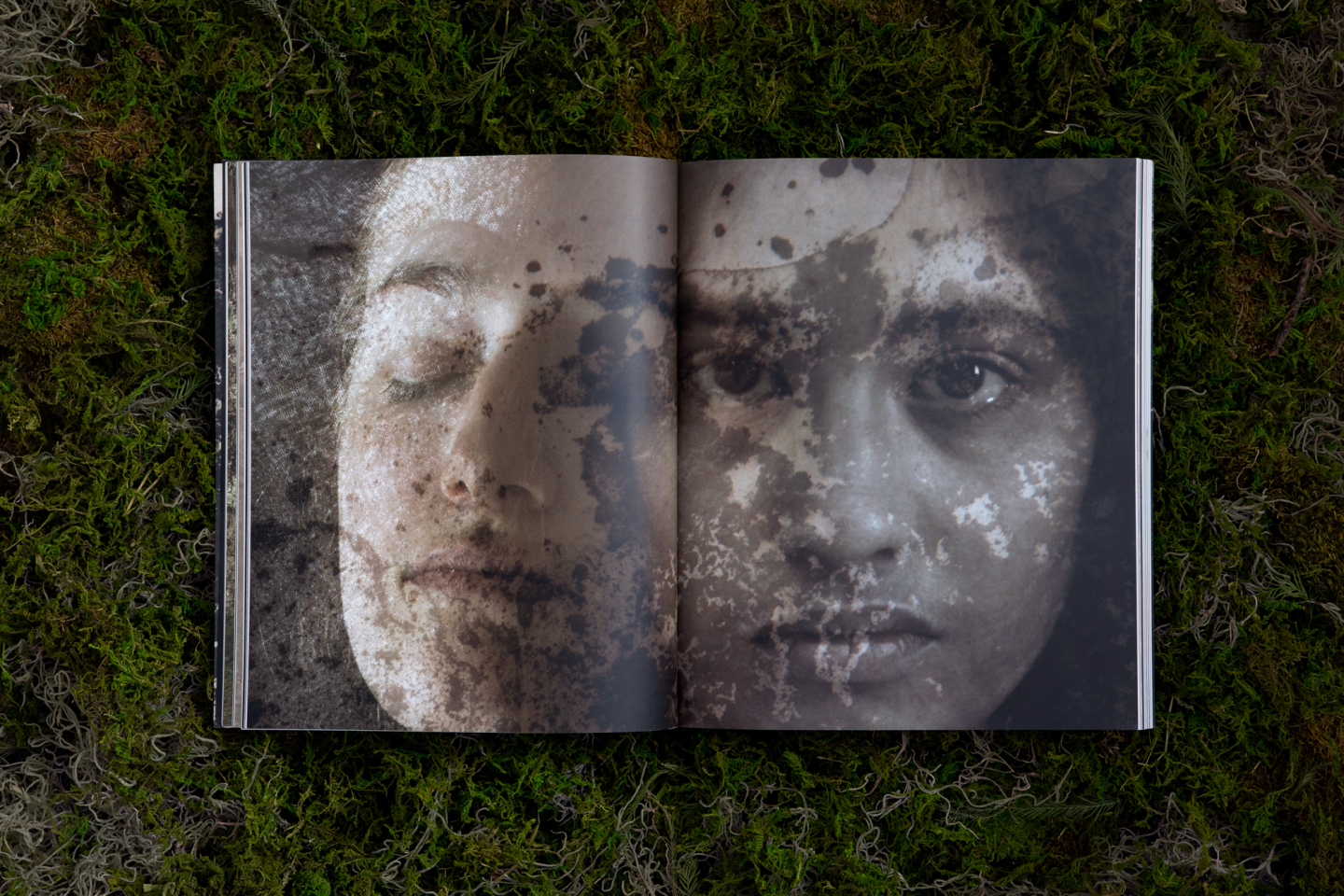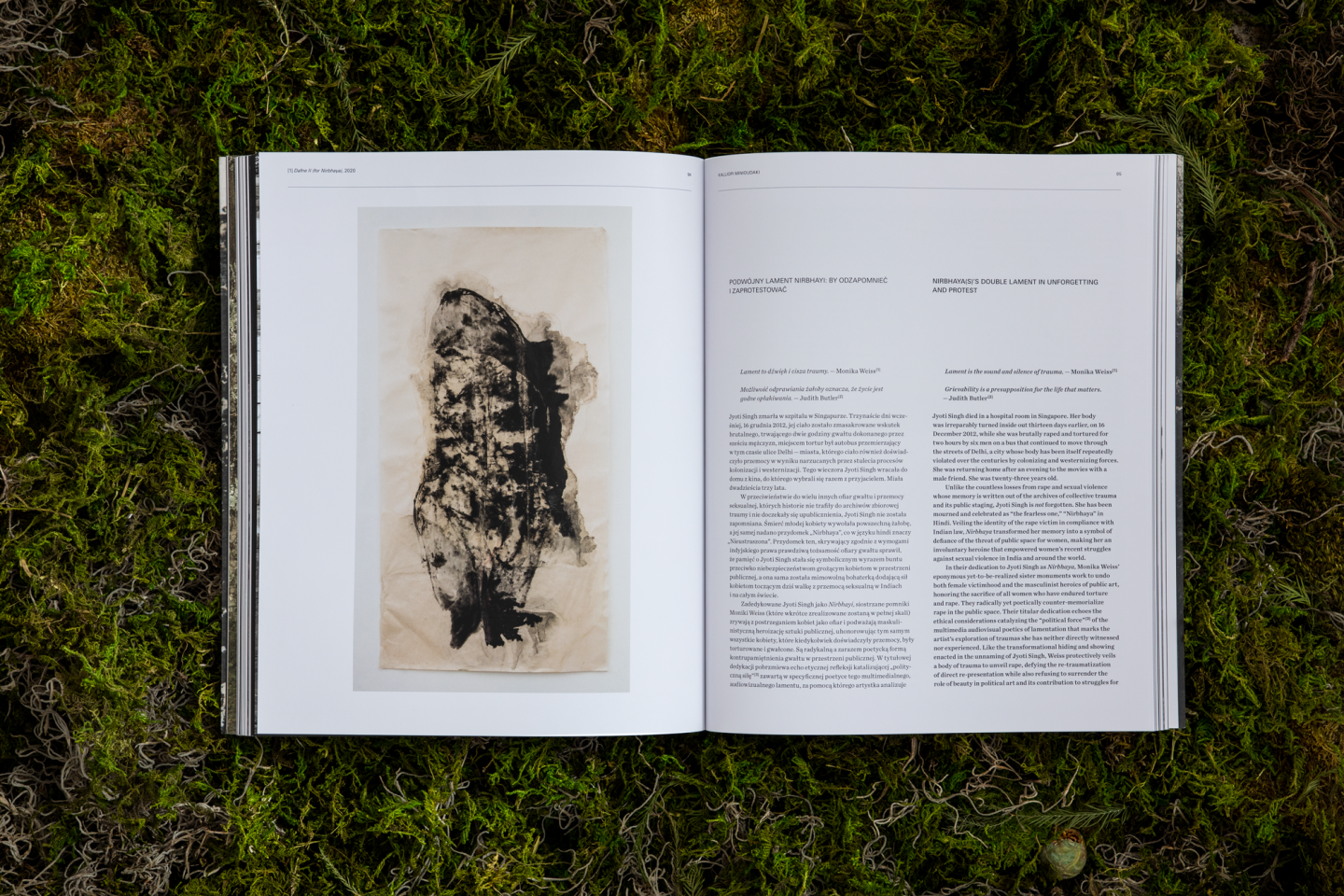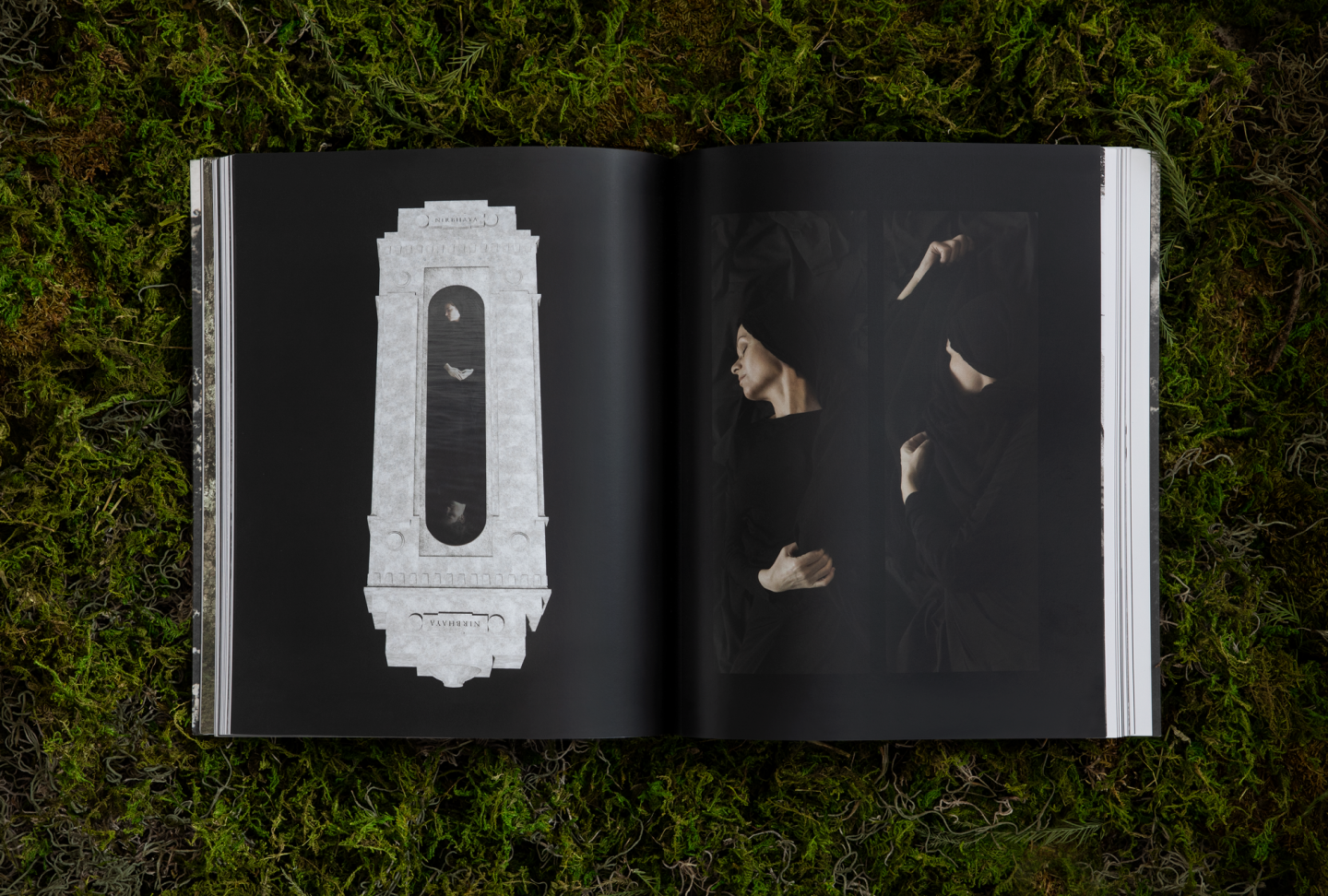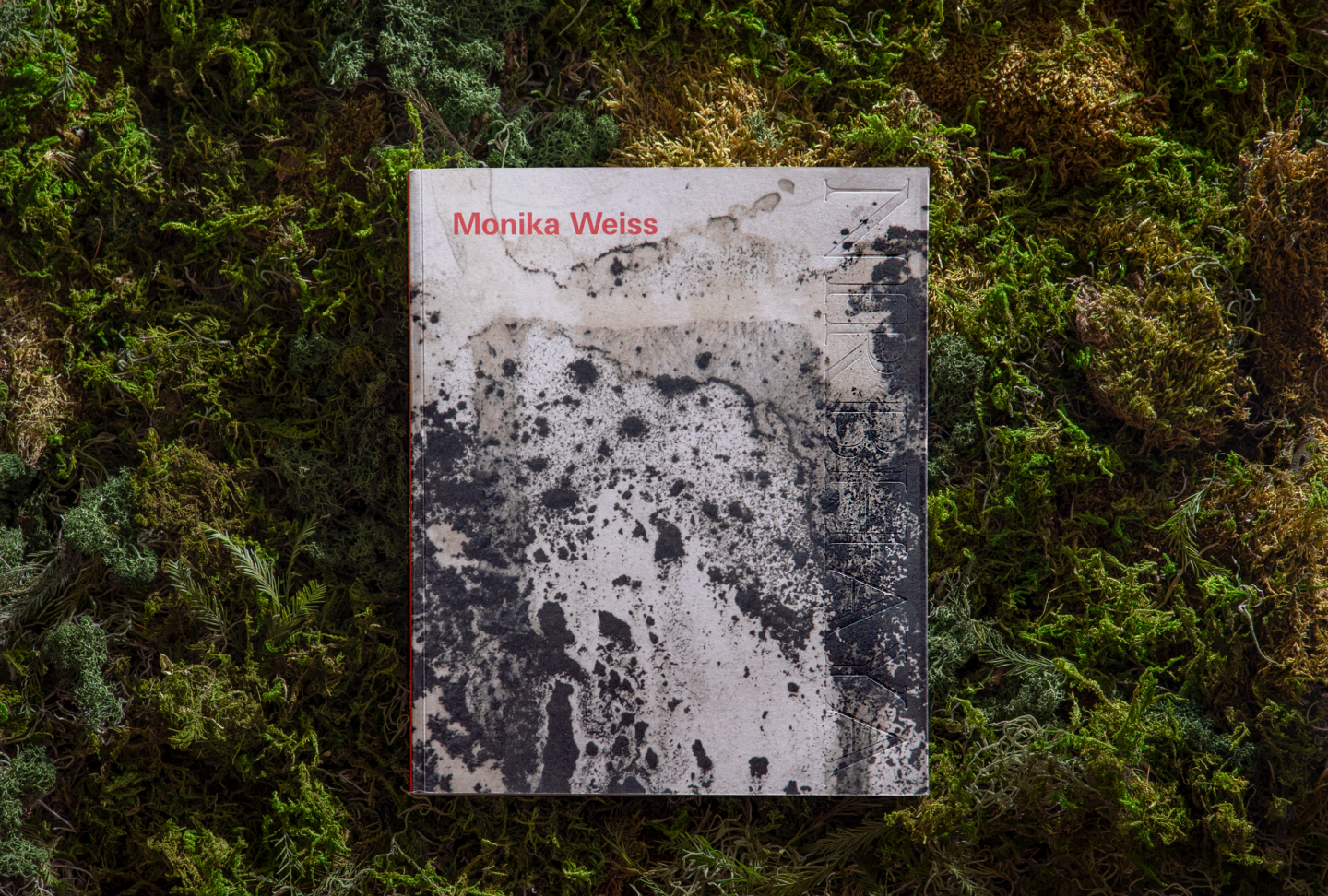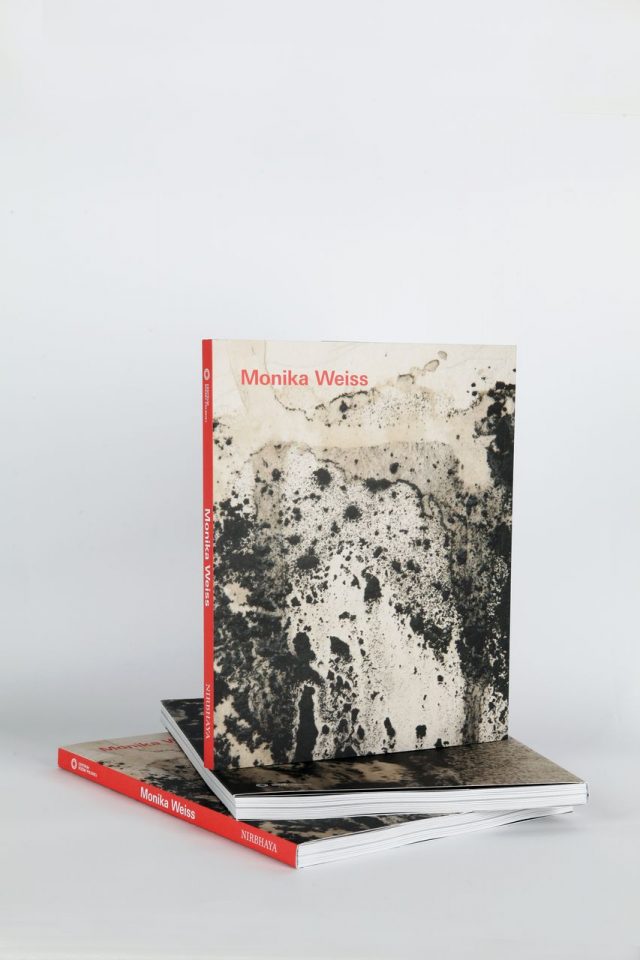
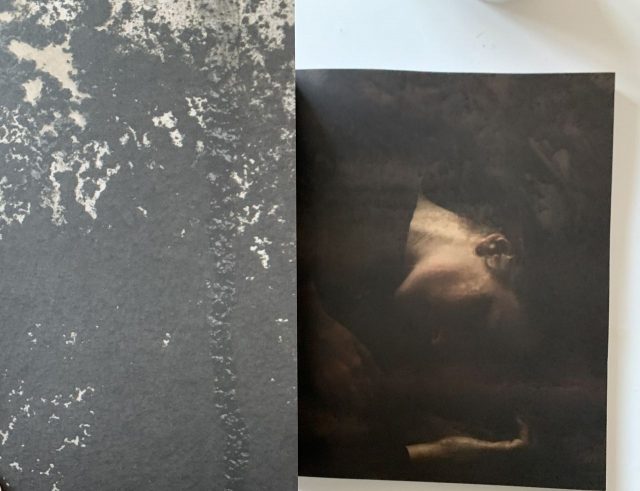
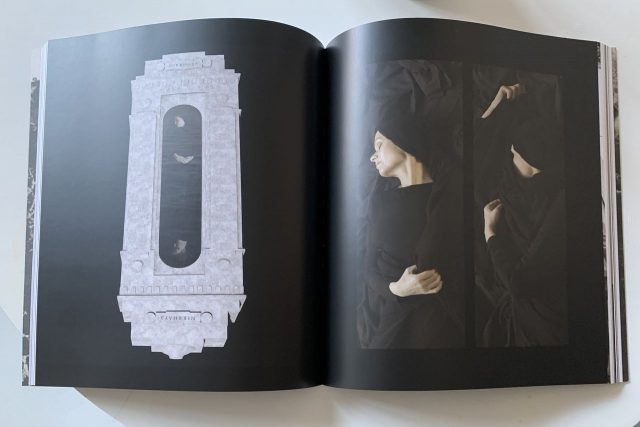
Monika Weiss. Nirbhaya
Griselda Pollock i in.
Orońsko 2021
Monika Weiss. Nirbhaya is the title of a new publication released by the Centre of Polish Sculpture.
Monika Weiss. Nirbhaya is an extensive monograph of an outstanding Polish-American artist, Monika Weiss. In her work, she focuses on politics and poetics of memory, alluding to the history of the neglected or erased from the collective awareness. In her projects the artist presents the woman’s body, including her own, as a carrier of memory and potential place of transformation.
The publication concentrates on the artist’s latest project – the monument devoted to the victims of violence, dedicated to Jyoti Singh. What became a direct inspiration for the project was India Gate in New Delhi and Arc de triomphe in Paris. It is the author’s response to the symbolism of monuments devoted to heroism of war participants, her protest against their status. Weiss lays the arch on the ground and reduces its scale to the size of a stone sarcophagus filled with water and a moving image. The context of the project points to two kinds of oppression – the colonial oppression of cities and violence against women, although, as the artist suggest, the monument also plays the role of a place of rebirth, reflection and retaining living memory.
The core of the publication consists of critical texts devoted both to Nirbhaya and the artist’s previous projects. The monograph includes essays about the most important themes present in Monika Weiss’s work, inherent in the series of drawings she has been creating over the recent years, her video projects and projects in the public space realized in many cities of the world, as well as the motif of sound which is hugely significant for the artist. Another crucial aspect is also the symbolic meaning of lamentation, which is Monika Weiss’s art acquires a revolutionary dimension and is a starting point for many of her works.
Monika Weiss’s monograph includes texts of renowned critics and art historians: Griselda Pollock, Mark McDonald, Kalliopi Minioudaki, Meena Alexander, Buzz Spector, Weronika Elertowska, Katarzyna Falęcka, Eulalia Domanowska, as well as an introduction written by the Director of the Centre of Polish Sculpture Maciej Aleksandrowicz.
Prof. Griselda Pollock is a historian of art conducting cultural research in the scope of feminist, international, post-colonial and queer studies in arts and visual cultures. Famous for her theoretical and methodological innovations and interpretations of old and contemporary art, film and theory of culture, Pollock threw down a challenge to her own discipline. Her book Old Mistresses: Women, Art and Ideology, co-written by Rozsika Parker (1981) , re-published in 2020, still remains a topical and radical criticism of history of art and its canon, selective in terms of sex. The publication became a classical text in the feminist history of art, just like her earlier publication Vision and Difference: Femininity, Feminism and Histories of Art (1988). Developing a trans-disciplinary approach to contemporary art and its new forms and media, Pollock is regarded as one of the most important theoreticians in the domain of feminist theory, history of art and gender studies. In March 2020, Pollock became a laureate of the Holberg Prize for her groundbreaking contribution to the feminist history of art and culture studies. Griselda Pollock is now a professor emeritus at Leeds University, where she had been lecturing for 43 years. She has published 22 monographs, and four others will be published shortly. He latest monograph is Charlotte Salomon and the Theatre of Memory (Yale University Press, 2018).
Dr Mark McDonald is a curator of drawing and graphic art at the Metropolitan Museum of Art in New York. He joined the MMA in 2014, having earlier worked at the British Museum in London. His interests span Renaissance and early-modern European graphic art, Latin American graphics as well as contemporary art – the domains on which he published his books. McDonald was the curator of exhibitions in many institutions, including British Museum, Museo del Prado, Metropolitan Museum of Art. He authored, inter alia: The Print Collection of Ferdinand Columbus: 1488–1539 (Mitchell Prize for Art History), six-volume publication from the printed collection Cassiano dal Pozzo, Alonso Berruguete. First Sculptor of Renaissance Spain (Eleanor Tufts award), and recently Goya’s Graphic Imagination.
Meena Alexander, poet born in Allahabad in India, raised in Kerala and Sudan. Her collections of poetry include: Atmospheric Embroidery (2018), Birthplace with Buried Stones (2013) and Illiterate Heart (2002) – the last one won the PEN Open Book award. In her works the author raises the themes of migration, trauma and reconciliation. She is the laureate of awards and distinctions: John Simon Guggenheim Foundation, National Endowment for the Humanities, Fulbright Foundation, Rockefeller Foundation, New York Foundation for the Arts, Arts Council of England, Imbongi Yesizwe International Poetry Award, South Asian Literary Association’s Distinguished Achievement Award. Alexander lived in New York, where she was professor at the Graduate Centre, Hunter College, CUNY. She died at the end of 2018.
Dr Kalliopi Minioudaki is a feminist historian of art specializing in postwar art from a transnational perspective, working as an independent scholar and curator in Athens and New York. She is the editor of On the Cusp of Feminism: Women Artists in the Sixties (Konsthistorisk Tidskrift, 2014), co-editor of the book Seductive Subversion: Women Pop Artists, 1958–1968 (Abbeville Press, 2010) and author of Pop’s Ladies and Bad Girls: Axell, Pauline Boty and Rosalyn Drexler (Oxford Art Journal, 2007). Her selected curatorial projects include: Sophia Petrides: No Hope For Death (Athens, Art Cinema Aavora, 2017) and Carolee Schneemann: Infinity Kisses (The Merchant House, Amsterdam, 2015), as well as exhibitions of video art and performance at the The Stavros Niarchos Foundation Cultural Center in Athens (2015–2018).
Eulalia Domanowska is a historian of art, art critic and curator of over 100 exhibitions in Poland and Europe as well as academic lecturer. From 2016 to 2019 she was the Director of the Centre of Polish Sculpture in Orońsko. Member of AICA and IKT (Association of Curators of Contemporary Art). Chief editor of the Sculpture Quarterly ‘Orońsko’ in the years 2016-1019. Initiator and organizer of an international conference ‘Sculpture Today’ since 2016. Studies in the scope of Swedish language, Swedish art, museology, ethnology and gender art at the University in Umeå, Sweden. Now, art specialist at the University of Technology in Białystok. Her particular interests lie in modern and contemporary art, art in the public space, art in landscape and sculpture parks.
Buzz Spector is an artist and writer, who recently moved to the northern part of New York State. Drawing has been an important part of his studio work since the beginning of his career. Spector presents systematic rips of sheets of paper in many of his works, in which the edges become lines. Besides artistic work, Spector is a critical writer whose essays and reviews have been published in Afterimage, American Craft, Artforum and Art on Paper, as well as in many other magazines. He is professor emeritus of art at Sam Fox School of Design & Visual Arts, Washington University in St. Louis.
Weronika Elertowska, curator, author of texts, photographer, is a graduate of the Faculty of Multimedia Communication of the University of Art in Poznan and Marketing of Culture, at the Faculty of Journalism and Political Sciences, Warsaw University. Scholarships at the Faculty of Photography and Media, Academy of Fine Art in Vilnius (2009) and Artistic University in Cluj-Napoca, Rumania(2010). Her artistic practice involves interdisciplinary activities combining digital recording of image with classical photographic processes and film. Collaborating with the Institute of Physical Chemistry of the Polish Academy of Sciences she works on issues connected with the biological and chemical aspect of memory in the context of photographic recording within the framework of a research programme of Dr Emilia Witkowska Nery. Since 2016 she has been a curator at the Centre of Polish Sculpture in Orońsko.
Dr Katrzyna Falęcka is an assistant lecturer at the History of Art Faculty, Newcastle University and specializes in the art of Northern Africa and Middle East of the 20th and 21st centuries. She defended her doctoral thesis at the University College London. She co-creates a programme on modern art at the Centre d’Études Maghrébines à Tunis. She was the curator of the exhibition Beyond Metaphor: Women and War at apexart, New York (27 May – 31 July 2021) as well as author of academic articles, inter alia in Search of Archives, eds. Sarah Dornholf and Nadia Sabri (Berlin 2021, Archive Books) and African Arts.
Editors: Halina Gajewska, Barry Keane
Translation: Izabela Suchan
Graphic design of the publication: Irina Pavlova
Financed thanks to the support of the Ministry of Culture, National Heritage and Sport, US Embassy in Warsaw, Sam Fox School of Design & Visual Arts as well as Washington University in St. Louis.
